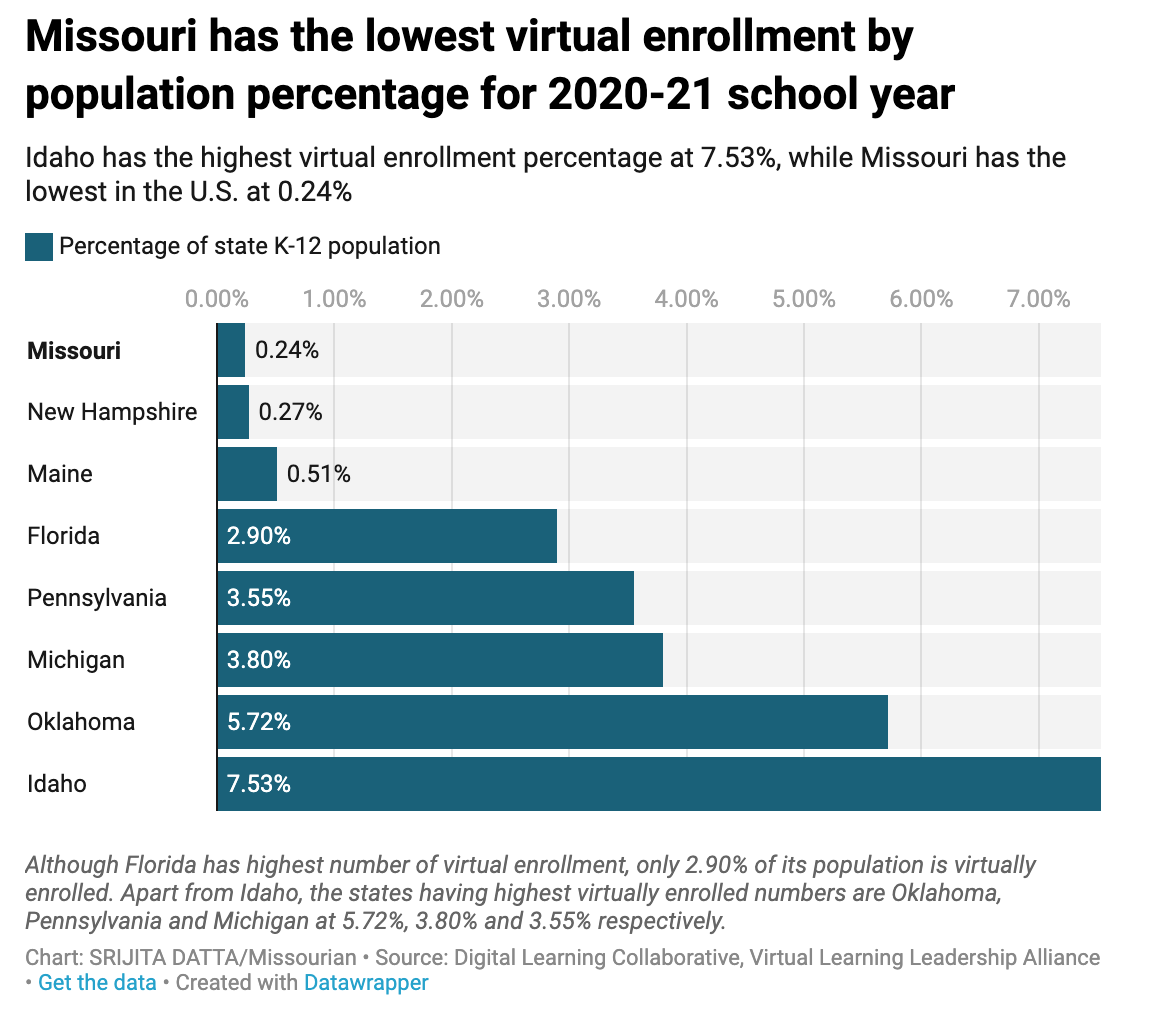Virtual ed fix could be life-changing for Missouri students
A fix to the Missouri Course Access and Virtual Education Program (MOCAP) working its way through the legislature this week could be a lifeline for Missouri students looking for educational options.
Last week, Senators agreed to a substitute version of HB1552 that would not only provide equal funding for charter school students but also change the way the MOCAP program works to give families full control over the decision to enroll in full-time virtual education programs.
The legislation would prevent local school administrators from acting as gatekeepers for the program and ensure that decisions to enroll in virtual education are based on what is best for the student and not the financial concerns of local school districts.
Missouri has lagged behind the rest of the country in virtual school enrollment as a result of the existing gatekeeper structure. In fact, a recent study showed that less than one percent, only 0.24%, of Missouri students were enrolled in virtual education in the 2020-21 school year despite thousands of students applying to participate in the MOCAP program.

Passage of HB1552 would go a long way toward fixing this problem and give students direct access to high-quality virtual education that fits their specific needs.
The Barton family in Kansas City is a great example of how impactful this new legislation will be.
Jesse Barton, a longtime public school teacher, says his children have traditionally attended Catholic schools, but that his family recently decided that virtual education would be a better fit for two of his children.
When they approached their local school district to take advantage of the MOCAP program, however, they were told they would have to attend a brick-and-mortar school for a semester before they could even be considered to enroll in a virtual education program.
“I was told that even if I choose to enroll them in a local, brick-and-mortar school for one semester as the law requires, a ‘committee’ must first convene to decide whether or not MOCAP is a ‘good fit’ for my daughters,” he said, noting that school officials refused to tell him what his children would have to do to get permission to participate in MOCAP. “It took days to even contact the appropriate authority at our local school district. Bottom line: school districts – at least ours – will do anything they can to obfuscate, block, discourage, or otherwise prevent enrollment in alternatives.”
Passage of HB1552 would remove the red tape and provide the Bartons a clear path to accessing the education they feel is best for their children.
One of those children, Sarah Barton said that while she intends to continue learning in person, the flexibility provided by virtual education is clearly the best path for her siblings.
“One of my siblings excels in academics and finds in-person school boring and easy,” she said. “My other sister has always completed her schoolwork at a pace slower than her peers, although she understands the material. The notion of customizable education with a rigor level set by one’s own performance is a relief for myself and my family. It assures that my siblings will be receiving the high-quality education they need.”
Melody Merchant, a parent in the Cape Girardeau area, said she has had similar issues getting her son Christopher enrolled in a full-time MOCAP program and that passage of HB1552 may be the last chance her son has of graduating high school.
“My son is gifted and in his earlier years he loved school but as the years have gone by he hasn’t been challenged and his excitement and love of school has deteriorated,” she said. “Now that he is a teenager he has been acting out and starting last year he has been refusing to go to school. He just needed a virtual option so that he could excel at his own pace.
“Last fall when I asked about MOCAP I was told I would be denied. I had to go through the appeals process and the board voted in my favor but by that time it was mid-October. He wasn’t able to complete his coursework with only two months left in the semester so the district denied him again for the second semester. I felt like he was set up for failure. We’re now back to square one with his complete disinterest in school. The school is now asking me to withdraw my son and homeschool which I am not able to do as a single mother. If HB 1552 passes this will give my son the only chance he has left of graduating high school. If I can apply directly to MOCAP I can get my son set up for success for the next school year. “
The Senate is expected to vote on HB1552 this week. If it passes the Senate, changes made to the legislation in the Senate will need to be approved through a final vote in the House before being sent to the Governor for his signature.
To contact your legislators about your support for this bill please click here.
« Previous Post: ESA bill becomes law; families eager for more educational opportunities
» Next Post: Families win with changes to ESA rules